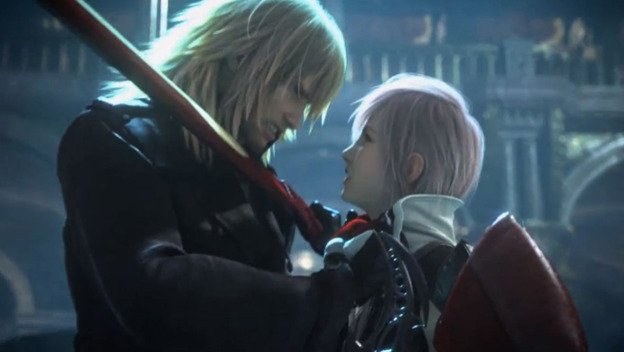This month brought us two role-playing games from Square Enix, Bravely Default and Lightning Returns: Final Fantasy XIII . The reception that the two games received could hardly be more different. While Bravely Default was heralded as a well-executed classic RPG with some excellent modern twists, Lightning Returns was largely ignored or panned, even by fans of the genre.
How did Square Enix manage to turn out a gem like Bravely Default and a flop like Lightning Returns at around the same time? I have several theories on the matter, all of which speak to the challenges facing this veteran Japanese RPG developer in the present and the future.
One of the main reasons Bravely Default turned out so well is that it wasn’t strictly developed by Square Enix. It was developed in conjunction with Silicon Studio, an independent developer that seemed able to fully stretch its wings with the support of a large company behind it.
The reason this is important is that the main Final Fantasy series is desperately in need of fresh blood and new ideas. Most of the lead staff members behind Lightning Returns , and indeed all of the Final Fantasy XIII games, have been working at Square Enix since the 1990s and seem to be struggling with the HD era of game development.
Bravely Default ‘s team, on the other hand, included an outsider director, a producer who hasn’t been heavily involved in the modern Final Fantasy series, and a head writer who comes from the world of visual novels. These fresh eyes have given Bravely Default innovative gameplay tweaks while keeping the game as a whole coherent and balanced.
Along with a tired set of developers, Lightning Returns suffers from being a game that exists primarily to help Square Enix survive financially in-between major Final Fantasy releases. Now, all games exist to make money to some degree, but the Final Fantasy XIII sequels were specifically put out as quick money-makers to help keep the company afloat. They weren’t originally planned, and their stories reflect that fact.
As the development time for Final Fantasy games grows ever longer and more expensive ( Final Fantasy XV has been in development since 2006 and isn’t coming out any time soon), the company has been searching for ways to stretch its development budget and put out new games quickly. Unfortunately, in the case of both Final Fantasy XIII sequels, the result is games that feel rushed and discombobulated, with a few good ideas that are spoiled by poor storytelling, inconsistent characterization, and a mushy gameplay experience.

I’m a bit concerned about future Bravely games, since it appears that the company hopes to release them annually. There’s a chance that this series could fall into the same patterns as the Final Fantasy XIII sequels, lacking sufficient development time and suffering from creative stagnation or kitchen sink feature creep. For now, though, Bravely Default serves as an example of how both Japanese and Western gamers are happy to play a quality RPG that is based on simple design principles that are executed well.
What’s most worrisome for RPG fans is that Square Enix seems determined to focus on the mainline Final Fantasy series in the West, while its more fresh and interesting games either stay in Japan or are picked up for translation by other companies, as was the case for the Nintendo-published Bravely Default . It’s particularly puzzling that Square Enix is so reluctant to release 3DS games here, considering that the console has a strong user base that eats up quality RPGs.
I can only hope that Square Enix learns some lessons from the North American faceoff of Bravely Default and Lightning Returns . The company needs a talent shakeup, project management that promotes healthy development times (longer than a year but shorter than five years), and a return to basic, solid game design principles. Bravely Default shows what can happen when all those things line up, while Lightning Returns is a sad reflection of the state of the company’s veteran development teams.
